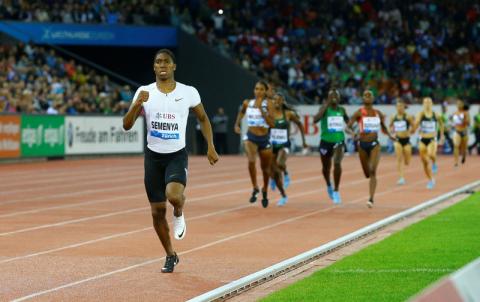Advertisement
Semenya free to run without medication while appeal is heard - court
LAUSANNE, Switzerland (Reuters) - Double Olympic champion Caster Semenya will be able to run in her favoured 800 metres event without medication to lower her testosterone levels until an appeal to the Swiss Federal Tribunal has been ruled on, the court said on Monday.
The Court of Arbitration for Sport (CAS) had ruled the International Association of Athletics Federations regulations were necessary for XY chromosome athletes with differences in sexual development (DSDs) competing in events ranging from 400 metres to a mile.
The CAS verdict, challenged by South African Semenya, was highly controversial, with many high-profile current and former athletes lining up on both sides of the debate.
"The Federal Supreme Court of Switzerland has ordered the IAAF to immediately suspend the implementation of the eligibility regulations against Caster Semenya, allowing her to compete without restriction in the female category while her
appeal is pending," a statement from Semenya’s lawyers said.
No time frame has been given for when a final ruling might be made, but the IAAF will make further submissions to the court, the statement said.
"The Swiss Supreme Court has granted welcome temporary protection to Caster Semenya. This is an important case that will have fundamental implications for the human rights of female athletes," added Dorothee Schramm of Sidley Austin LLP, Swiss counsel for Semenya.
Speaking through her lawyers, Semenya said she remains hopeful of her appeal being successful.
"I am thankful to the Swiss judges for this decision. I hope that following my appeal I will once again be able to run free,” she said.
The IAAF did not immediately reply to a request for comment.
Semenya won her last competitive 800 metres race at the Doha Diamond League on May 3, and could potentially race again in Oslo on June 13.
Testosterone is a hormone that increases muscle mass, strength and haemoglobin and the IAAF said its own research showed it gave a significant endurance advantage to athletes in the 400 metres-mile range.
(Reporting by Nick Said, editing by Ed Osmond)



















Add new comment